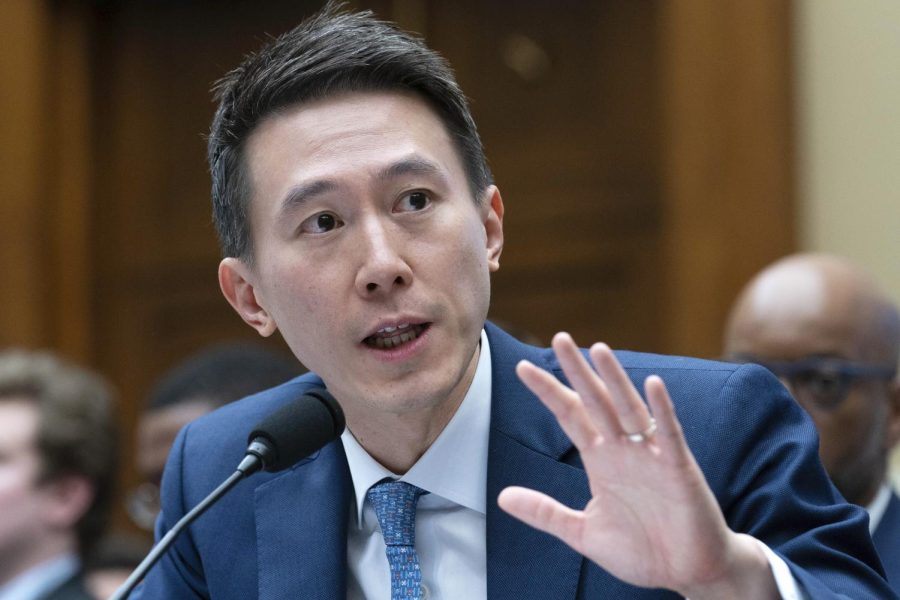TikTok CEO’s heated debate with Congress
AP Photos
TikTok CEO Shou Zi Chew during the March 23 Congress hearing on TikTok’s safety for children. TikTok is facing bans across the country such as a recent ban in Utah.
April 4, 2023
On March 23, TikTok CEO Shou Zi Chew sat before one of the most bipartisan committees Congress has seen.
Chew testified for four and a half hours in front of the U.S. House Energy and Commerce Committee, answering aggressive questions. Chew became the CEO of TikTok two years ago, an app that currently caters to more than a billion global active users and over 150 million users in the United States, according to Wallaroo Media.
TikTok is owned by the Chinese company ByteDance which is based in Beijing. Congress’s major concern is whether TikTok has any relation with the Chinese Communist Party through ByteDance. A fact that Chew has stressed throughout the hearing is that ByteDance is not owned by the Chinese government. On the contrary, TikTok is owned by global investors and employees around the world.
“TikTok itself is not available in mainland China. We’re headquartered in Los Angeles and in Singapore,” Chew remarked during the hearing.
During the hearing, Congress made several statements claiming that TikTok should be banned due to the Chinese Communist Party stealing U.S. user data and exploiting it. Lawmakers aim to put the American people back in control of their data and believe TikTok does not possess the qualities of freedom and liberty. These are claims that Chew has repeatedly dismissed.
“American data will be stored on American soil, by an American company, overseen by American personnel,” said Chew in a TikTok video.
Besides expressing concern for unwanted foreign access to U.S. data, Congress displayed their lack of expertise in the field of technology by asking Chew about TikTok’s ability to access the home wifi and why the app would need to detect a user’s eyes if they use a filter.
Banning social media isn’t new to U.S. policymakers. On March 13, Utah Governor Spencer Cox passed a series of laws requiring kids under 18 to get parental consent when making accounts on Instagram and TikTok. Kids are also required to verify their age and cannot use social media sites from 10:30 p.m. to 6:30 a.m. when in the state of Utah.
These laws will take effect in March 2024. Cox’s reasoning for enacting the laws was so that he could hold social media companies accountable for the “deceptive practices that are damaging our kids,” said Cox in a Twitter post.
While banning social media at the federal level is taking too long, other states may join Utah in passing legislation at the state level to ensure companies cannot track kids’ data and to control the content kids are seeing.







